tutorial, commentary, study resources, plot, and web links
The Point of View is rather unusual in Henry James’s oeuvre, in that it was first produced by Macmillan in London as a privately printed edition in 1882 for which James himself paid. He did this in order to protect his copyright to the text at a time before the introduction of international agreements between America and the United Kingdom, which did not come into force until the 1890s. The story first appeared in The Century Magazine in December 1882, then in single volume collections of his tales in 1883, followed by a Tauschnitz ‘European’ edition the following year.
Northumberland Hotel – Washington
The Point of View – critical commentary
Context
The Point of View is at face value nothing more than a collection of satirical sketches poking fun at various character types – the enthusiastic young woman (Aurora), the snobbish over-protective mother (Mrs Church), the jaded aesthete (Louis Leverett), the upper-class English bore (Mr Antrobus) – and so on. And their views of society on reaching America obviously reflect in exaggerated form some of James’s own ambiguous feelings about his native land and his ever-active interest in the relationship between Europe and America. But if the story is viewed in the context of the two tales that precede it – The Pension Beaurepas (1879) and A Bundle of Letters (1879) – it takes on a deeper set of meanings.
We know for instance from The Pension Beaurepas story that Aurora Church was feeling oppressed by the European conventions regarding young women in which her mother has held her trapped for most of her young life. She has been educated – in terms of art galleries and museums – but has never been allowed out alone even though she is of an age to marry.
She therefore sees America as the land of democratic freedom which will permit her to mix with whoever she wishes, and possibly find her own husband. The fact that she has failed to do so at the end of The Point of View does not invalidate the positive gesture in favour of the human spirit that her ‘escape’ from Europe represents.
Similarly, Louis Leverett, the over-developed art lover from the earlier story A Bundle of Letters expresses an almost hysterical hatred for the Boston hotel in which he finds himself. But we know from his appearance in A Bundle of Letters to be an over-refined name-dropping poseur – so his criticisms should not be taken at face value. In fact his characterisation seems to represent almost a satirical portrait of James himself – the American viewing his homeland after many years living in Europe.
But it is the sane and sober observations of the fifty year old Miss Sturdy which are probably a closer match to James’ own true views. In fact James also includes a cameo satirical portrait of himself in the letter of the french critic Gustave LeJaune reporting on the absence of American culture to a colleague back in Paris:
They have a novelist with pretensions to literature, who writes about the chase for the husband and the adventures of the rich Americans in our corrupt old Europe, where their primeval candour puts the Europeans to shame. C’est proprement écrit; but it’s terribly pale.
America – and Europe
And if you wish to see Henry James as a social and political prophet, you need look no further than these lines, penned by Marcellus Cockerel, a pro-Yankee character, tired of world travel, and glad to be back home:
Our salvation is here [in America], if we have eyes to see it, and the salvation of Europe into the bargain; that is, if Europe is to be saved, which I rather doubt.
Once one feels, over here, that the great questions of the future are social questions, that a mighty tide is sweeping the world to democracy, and that this country is the biggest stage on which the drama can be enacted, the fashionable European topics seem petty and parochial.
In England they were talking about the Hares and Rabbits Bill, about the extension of the County Franchise, about the Dissenters’ Burials, about the Deceased Wife’s Sister, about the abolition of the House of Lords, about heaven knows what ridiculous measure for the propping-up of their ridiculous little country. And they call us provincial!
Those words come from a story written one hundred and twenty seven years ago, but they might have been written last week.
[I have artificially created the three separate paragraphs in the quotation above for the sake of clarity. In the printed text there are no paragraphs. Each correspondent’s letter is a continuous block of text, with no paragraphs.]
The Point of View – study resources
![]() The Complete Works of Henry James – Kindle edition – Amazon UK
The Complete Works of Henry James – Kindle edition – Amazon UK
![]() The Complete Works of Henry James – Kindle edition – Amazon US
The Complete Works of Henry James – Kindle edition – Amazon US
![]() Complete Stories 1874—1884 – Library of America – Amazon UK
Complete Stories 1874—1884 – Library of America – Amazon UK
![]() Complete Stories 1874—1884 – Library of America – Amazon US
Complete Stories 1874—1884 – Library of America – Amazon US
![]() Tales of Henry James – Norton Critical Editions
Tales of Henry James – Norton Critical Editions
![]() The Point of View – eBook formats at Project Gutenberg
The Point of View – eBook formats at Project Gutenberg
![]() The Cambridge Companion to Henry James – Amazon UK
The Cambridge Companion to Henry James – Amazon UK
![]() Henry James at Wikipedia – biographical notes, links
Henry James at Wikipedia – biographical notes, links
![]() Henry James at Mantex – tutorials, biography, study resources
Henry James at Mantex – tutorials, biography, study resources
The Point of View – story synopsis
Part I. Aurora Church, a young American woman, is on a transatlantic liner, returning to the USA after an extended stay in Europe with her mother. She writes to a friend in Paris about her liberating sense of excitement of returning home, and the people she has met during the voyage. As a Europhile, her mother is not looking forward to the experience, and she has failed to find a husband for Aurora because she has no dowry. Aurora recounts how she has been pursued on board by Louis Leverett, a pretentious Bostonian would-be belle-lettrist and Mr Cockerel, an American lawyer who is resolutely pro-USA.
Part II. Having arrived in New York, Mrs Church writes to her Calvinist friend Madame Galopin in Geneva. She complains about the country in general and her lodgings in particular. She bemoans the lack of social distinctions and the fact that she cannot ascertain the incomes of the young men who are paying court to Aurora. She has agreed to let her daughter live by American standards for a test period of three months. Mrs Church’s manner is comically snobbish, convoluted, and self-regarding.
Part III. Miss Study, at Newport, writes to an American friend back in Florence. She sees the positives and the improvements in American life, and recounts her inviting the Englishman Mr Antrobus to stay at Newport. She is alert to the changes in American-English language, and she feels the predominance of American youth to be an overwhelming feature of modern life, and their propensity to talk a great deal, without being able to talk properly.
She notes that American girls are permitted social freedoms which would be denied to them in old Europe – and that society is the better for it. She admires the democratic spirit of her homeland, even though she admits it brings people to a less variegated common level than in Europe.
Part IV. Mr Antrobus writes from Boston to his wife back in England in a pompous and didactic manner, giving her a sociological account of his impressions. He is visiting schools and colleges, and even though he is supposed to be a radical (a liberal) he regrets that America does not have a class of aristocracy. He also travels with his own tin bath tub. He goes into comically excruciating detail about what might or could have been the case on every topic he discusses.
Part V. Louis Leverett, the Boston aesthete, writes to his friend back in Paris complaining bitterly about the conditions in his hotel and the absence of European sophistication that he has left behind. He argues that the democratic spirit of the USA reduces everything and everybody to an undistinguished mediocrity.
Part VI. The French critic Gustave LeJaune writes from Washington to his friend in Paris complaining about the size of the USA and the lack of manners in the general public. He is writing an official study of America as (the most important visitor since de Tocqueville). He complains about the lack of culture, the size and content of the newspapers, and the lack of social markers of distinction which permits a social free-for-all.
Part VII. The American Marcellus Cockerel returns after three years of touring the world and writes to his sister in California saying how pleased he is to be back in the USA, even if it is a vulgar society. He gives a jaundiced account of how much he hated being in Paris in particular, and vows that he will never return to Europe again. He excoriates the traditional pageantry and rituals of old Europe and argues that America is better off without them, no matter how much they are revered.
Part VIII. Aurora writes that she has come to the end of her three months of freedom, and has failed to meet anyone she would wish to marry. However, her mother has decided that they ought to move out to the West where is will be cheaper to live – and Aurora wonders if she might meet a rich Pioneer.
The Point of View – characters
| Mrs Church | an American expatriate who has been living in Europe |
| Aurora Church | her daughter, a spirited young American woman |
| Miss Sturdy | a stout, single American spinster (50) |
| The Honorable Edward Antrobus MP | an English traditionalist and bore |
| Louis Leverett | a small Boston aesthete |
| M. Gustave LeJaune | a French social citic |
| Marcellus Cockerel | a patriotic Yankee |
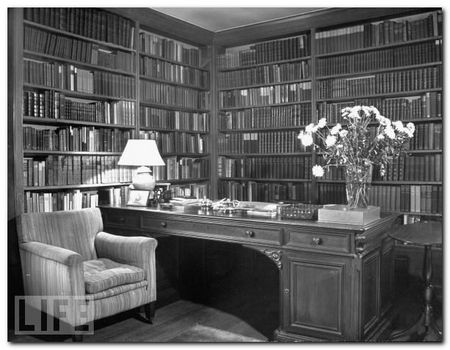
Henry James’s study
Further reading
Biographical
![]() Theodora Bosanquet, Henry James at Work, University of Michigan Press, 2007.
Theodora Bosanquet, Henry James at Work, University of Michigan Press, 2007.
![]() F.W. Dupee, Henry James: Autobiography, Princeton University Press, 1983.
F.W. Dupee, Henry James: Autobiography, Princeton University Press, 1983.
![]() Leon Edel, Henry James: A Life, HarperCollins, 1985.
Leon Edel, Henry James: A Life, HarperCollins, 1985.
![]() Philip Horne (ed), Henry James: A Life in Letters, Viking/Allen Lane, 1999.
Philip Horne (ed), Henry James: A Life in Letters, Viking/Allen Lane, 1999.
![]() Henry James, The Letters of Henry James, Adamant Media Corporation, 2001.
Henry James, The Letters of Henry James, Adamant Media Corporation, 2001.
![]() Fred Kaplan, Henry James: The Imagination of Genius, Johns Hopkins University Press, 1999
Fred Kaplan, Henry James: The Imagination of Genius, Johns Hopkins University Press, 1999
![]() F.O. Matthieson (ed), The Notebooks of Henry James, Oxford University Press, 1988.
F.O. Matthieson (ed), The Notebooks of Henry James, Oxford University Press, 1988.
Critical commentary
![]() Elizabeth Allen, A Woman’s Place in the Novels of Henry James London: Macmillan Press, 1983.
Elizabeth Allen, A Woman’s Place in the Novels of Henry James London: Macmillan Press, 1983.
![]() Ian F.A. Bell, Henry James and the Past, London: Palgrave Macmillan, 1993.
Ian F.A. Bell, Henry James and the Past, London: Palgrave Macmillan, 1993.
![]() Millicent Bell, Meaning in Henry James, Cambridge (MA): Harvard University Press, 1993.
Millicent Bell, Meaning in Henry James, Cambridge (MA): Harvard University Press, 1993.
![]() Harold Bloom (ed), Modern Critical Views: Henry James, Chelsea House Publishers, 1991.
Harold Bloom (ed), Modern Critical Views: Henry James, Chelsea House Publishers, 1991.
![]() Kirstin Boudreau, Henry James’s Narrative Technique, Macmillan, 2010.
Kirstin Boudreau, Henry James’s Narrative Technique, Macmillan, 2010.
![]() J. Donald Crowley and Richard A. Hocks (eds), The Wings of the Dove, New York: W.W. Norton and Company, 1978.
J. Donald Crowley and Richard A. Hocks (eds), The Wings of the Dove, New York: W.W. Norton and Company, 1978.
![]() Victoria Coulson, Henry James, Women and Realism, Cambridge University Press, 2009.
Victoria Coulson, Henry James, Women and Realism, Cambridge University Press, 2009.
![]() Daniel Mark Fogel, A Companion to Henry James Studies, Greenwood Press, 1993.
Daniel Mark Fogel, A Companion to Henry James Studies, Greenwood Press, 1993.
![]() Virginia C. Fowler, Henry James’s American Girl: The Embroidery on the Canvas, Madison (Wis): University of Wisconsin Press, 1984.
Virginia C. Fowler, Henry James’s American Girl: The Embroidery on the Canvas, Madison (Wis): University of Wisconsin Press, 1984.
![]() Jonathan Freedman, The Cambridge Companion to Henry James, Cambridge University Press, 1998.
Jonathan Freedman, The Cambridge Companion to Henry James, Cambridge University Press, 1998.
![]() Judith Fryer, The Faces of Eve: Women in the Nineteenth Century American Novel, Oxford: Oxford University Press, 1976
Judith Fryer, The Faces of Eve: Women in the Nineteenth Century American Novel, Oxford: Oxford University Press, 1976
![]() Roger Gard (ed), Henry James: The Critical Heritage, London: Routledge, 1968.
Roger Gard (ed), Henry James: The Critical Heritage, London: Routledge, 1968.
![]() Tessa Hadley, Henry James and the Imagination of Pleasure, Cambridge University Press, 2009.
Tessa Hadley, Henry James and the Imagination of Pleasure, Cambridge University Press, 2009.
![]() Barbara Hardy, Henry James: The Later Writing (Writers & Their Work), Northcote House Publishers, 1996.
Barbara Hardy, Henry James: The Later Writing (Writers & Their Work), Northcote House Publishers, 1996.
![]() Richard A. Hocks, Henry James: A study of the short fiction, New York: Twayne Publishers, 1990.
Richard A. Hocks, Henry James: A study of the short fiction, New York: Twayne Publishers, 1990.
![]() Donatella Izzo, Portraying the Lady: Technologies of Gender in the Short Stories of Henry James, University of Nebraska Press, 2002.
Donatella Izzo, Portraying the Lady: Technologies of Gender in the Short Stories of Henry James, University of Nebraska Press, 2002.
![]() Colin Meissner, Henry James and the Language of Experience, Cambridge University Press, 2009
Colin Meissner, Henry James and the Language of Experience, Cambridge University Press, 2009
![]() John Pearson (ed), The Prefaces of Henry James, Pennsylvania State University Press, 1993.
John Pearson (ed), The Prefaces of Henry James, Pennsylvania State University Press, 1993.
![]() Richard Poirer, The Comic Sense of Henry James, Oxford: Oxford University Press, 1967.
Richard Poirer, The Comic Sense of Henry James, Oxford: Oxford University Press, 1967.
![]() Hugh Stevens, Henry James and Sexuality, Cambridge University Press, 1998.
Hugh Stevens, Henry James and Sexuality, Cambridge University Press, 1998.
![]() Merle A. Williams, Henry James and the Philosophical Novel, Cambridge University Press, 1993.
Merle A. Williams, Henry James and the Philosophical Novel, Cambridge University Press, 1993.
![]() Judith Woolf, Henry James: The Major Novels, Cambridge University Press, 1991.
Judith Woolf, Henry James: The Major Novels, Cambridge University Press, 1991.
![]() Ruth Yeazell (ed), Henry James: A Collection of Critical Essays, Longmans, 1994.
Ruth Yeazell (ed), Henry James: A Collection of Critical Essays, Longmans, 1994.
Other works by Henry James
 The Aspern Papers (1888) is a psychological drama set in Venice which centres on the tussle for control of a great writer’s correspondence. An elderly lady, ex-lover of the writer, seeks a husband for her daughter. But the potential purchaser of the papers is a dedicated bachelor. Money is also at stake – but of course not discussed overtly. There is a refined battle of wills between them. Who will win in the end? As usual, James keeps the reader guessing. The novella is a masterpiece of subtle narration, with an ironic twist in its outcome. This collection of stories also includes three of his accomplished long short stories – The Private Life, The Middle Years, and The Death of the Lion.
The Aspern Papers (1888) is a psychological drama set in Venice which centres on the tussle for control of a great writer’s correspondence. An elderly lady, ex-lover of the writer, seeks a husband for her daughter. But the potential purchaser of the papers is a dedicated bachelor. Money is also at stake – but of course not discussed overtly. There is a refined battle of wills between them. Who will win in the end? As usual, James keeps the reader guessing. The novella is a masterpiece of subtle narration, with an ironic twist in its outcome. This collection of stories also includes three of his accomplished long short stories – The Private Life, The Middle Years, and The Death of the Lion.
![]() Buy the book from Amazon UK
Buy the book from Amazon UK
![]() Buy the book from Amazon US
Buy the book from Amazon US
 The Spoils of Poynton (1896) is a short novel which centres on the contents of a country house, and the question of who is the most desirable person to inherit it via marriage. The owner Mrs Gereth is being forced to leave her home to make way for her son and his greedy and uncultured fiancee. Mrs Gereth develops a subtle plan to take as many of the house’s priceless furnishings with her as possible. But things do not go quite according to plan. There are some very witty social ironies, and a contest of wills which matches nouveau-riche greed against high principles. There’s also a spectacular finale in which nobody wins out.
The Spoils of Poynton (1896) is a short novel which centres on the contents of a country house, and the question of who is the most desirable person to inherit it via marriage. The owner Mrs Gereth is being forced to leave her home to make way for her son and his greedy and uncultured fiancee. Mrs Gereth develops a subtle plan to take as many of the house’s priceless furnishings with her as possible. But things do not go quite according to plan. There are some very witty social ironies, and a contest of wills which matches nouveau-riche greed against high principles. There’s also a spectacular finale in which nobody wins out.
![]() Buy the book from Amazon UK
Buy the book from Amazon UK
![]() Buy the book from Amazon US
Buy the book from Amazon US
Henry James – web links
Henry James at Mantex
Biographical notes, study guides, tutorials on the Complete Tales, book reviews. bibliographies, and web links.
The Complete Works
Sixty books in one 13.5 MB Kindle eBook download for £1.92 at Amazon.co.uk. The complete novels, stories, travel writing, and prefaces. Also includes his autobiographies, plays, and literary criticism – with illustrations.
The Ladder – a Henry James website
A collection of eTexts of the tales, novels, plays, and prefaces – with links to available free eTexts at Project Gutenberg and elsewhere.
A Hyper-Concordance to the Works
Japanese-based online research tool that locates the use of any word or phrase in context. Find that illusive quotable phrase.
The Henry James Resource Center
A web site with biography, bibliographies, adaptations, archival resources, suggested reading, and recent scholarship.
Online Books Page
A collection of online texts, including novels, stories, travel writing, literary criticism, and letters.
Henry James at Project Gutenberg
A major collection of eTexts, available in a variety of eBook formats.
The Complete Letters
Archive of the complete correspondence (1855-1878) work in progress – published by the University of Nebraska Press.
The Scholar’s Guide to Web Sites
An old-fashioned but major jumpstation – a website of websites and resouces.
Henry James – The Complete Tales
Tutorials on the complete collection of over one hundred tales, novellas, and short stories.
Henry James on the Internet Movie Database
Adaptations of James’s novels and stories for the cinema and television – in various languages. Full details of directors and actors, production features, film reviews, box office, and even quizzes.
© Roy Johnson 2014
More tales by James
More on literature
More on the novella
More on literary studies
More on short stories
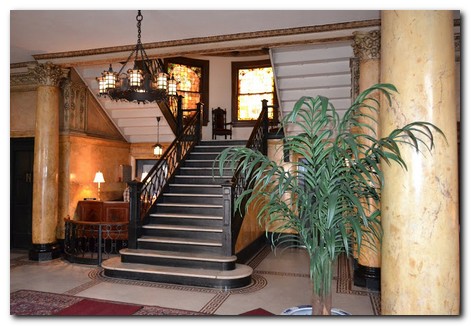

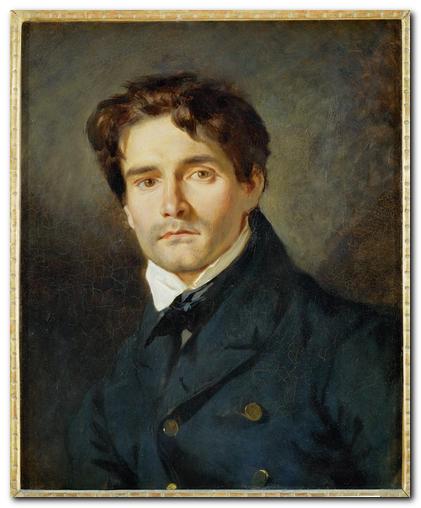
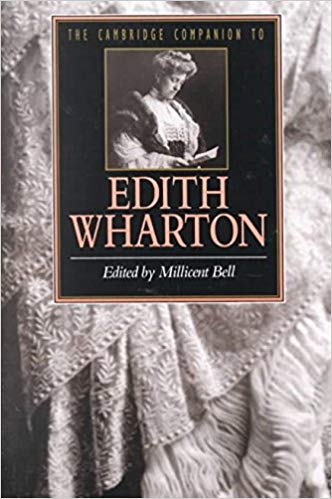
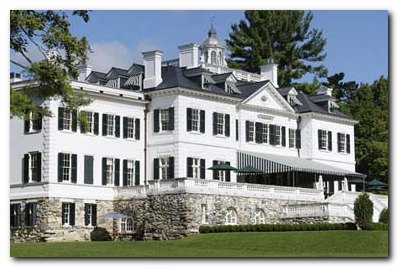
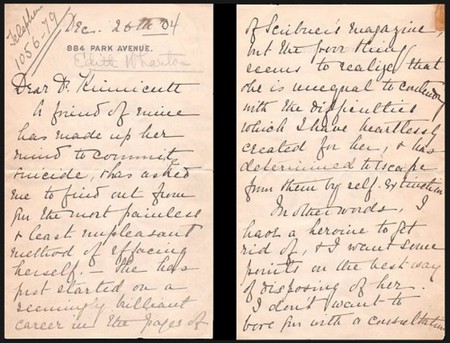
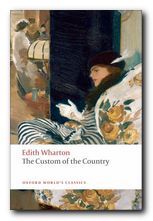 The Custom of the Country
The Custom of the Country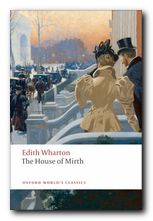 The House of Mirth
The House of Mirth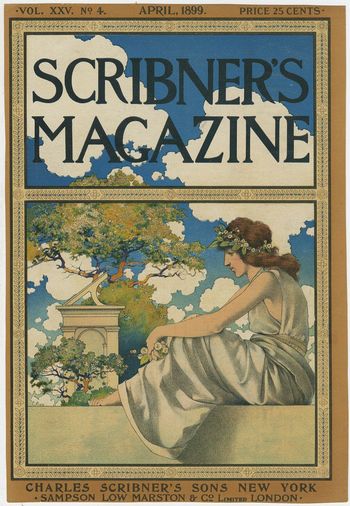
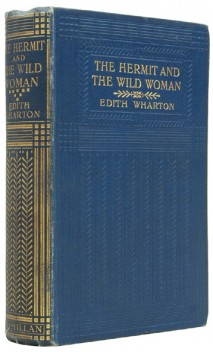
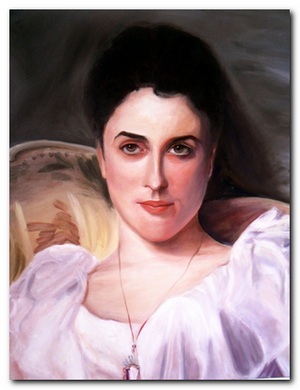
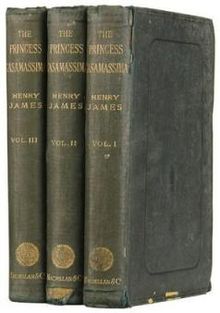

 Washington Square
Washington Square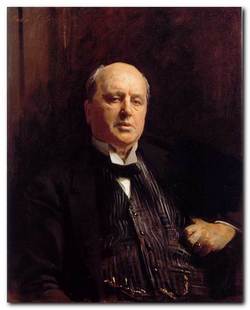
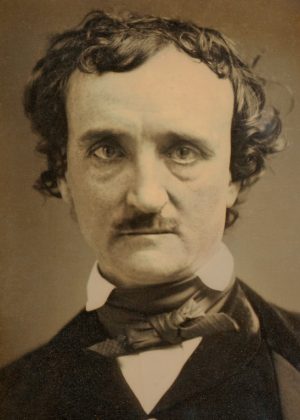

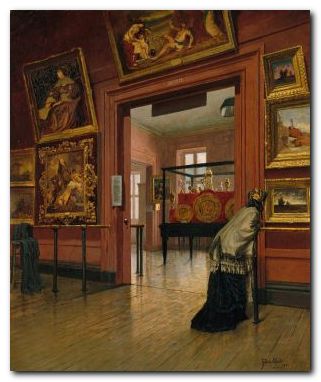
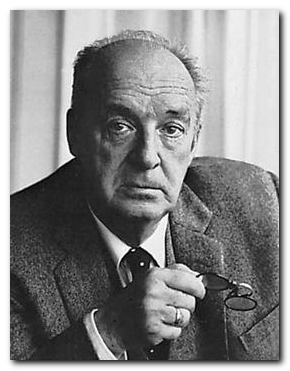
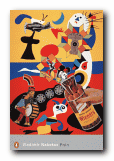 Pnin
Pnin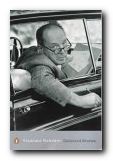 Collected Stories
Collected Stories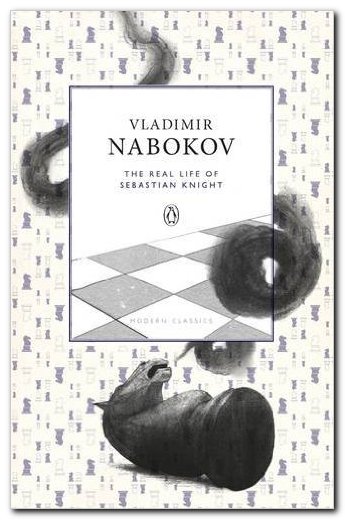
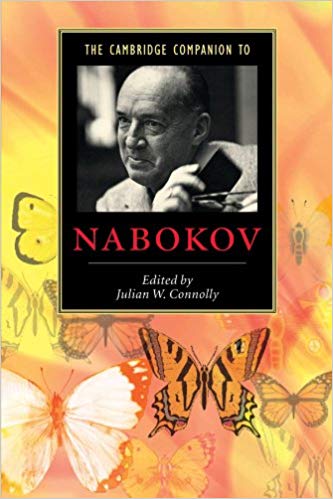
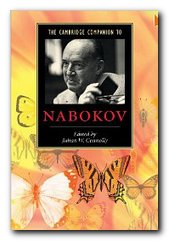 The Cambridge Companion to Nabokov Vladimir Nabokov held the unique distinction of being one of the most important writers of the twentieth century in two separate languages, Russian and English. This volume offers a concise and informative introduction into the author’s fascinating creative world. Specially commissioned essays by distinguished scholars illuminate numerous facets of the writer’s legacy, from his early contributions as a poet and short-story writer to his dazzling achievements as one of the most original novelists of the twentieth century. Topics receiving fresh coverage include Nabokov’s narrative strategies, the evolution of his world-view, and his relationship to the literary and cultural currents of his day. The volume also contains valuable supplementary material such as a chronology of the writer’s life and a guide to further critical reading.
The Cambridge Companion to Nabokov Vladimir Nabokov held the unique distinction of being one of the most important writers of the twentieth century in two separate languages, Russian and English. This volume offers a concise and informative introduction into the author’s fascinating creative world. Specially commissioned essays by distinguished scholars illuminate numerous facets of the writer’s legacy, from his early contributions as a poet and short-story writer to his dazzling achievements as one of the most original novelists of the twentieth century. Topics receiving fresh coverage include Nabokov’s narrative strategies, the evolution of his world-view, and his relationship to the literary and cultural currents of his day. The volume also contains valuable supplementary material such as a chronology of the writer’s life and a guide to further critical reading.